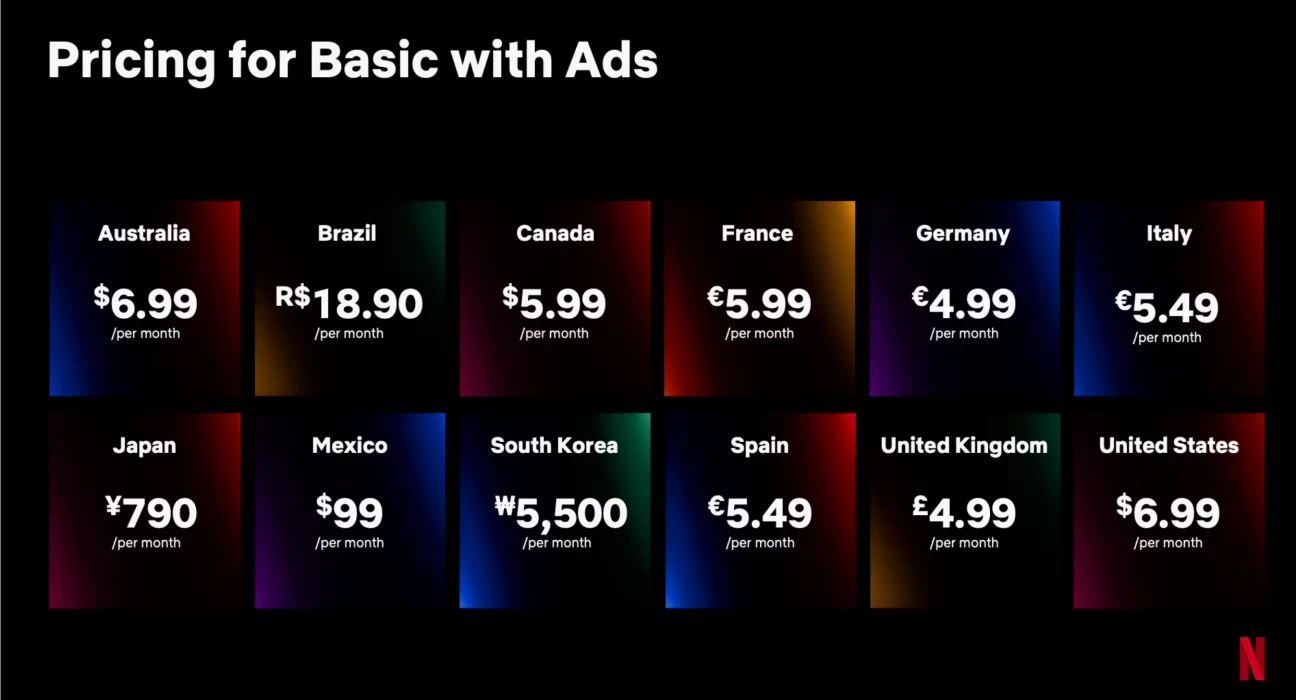Netflix, the leading streaming platform, has long been known for its ad-free viewing experience. However, recent reports have indicated that the company is testing this by introducing advertisements in certain parts of its content. This move has raised eyebrows among subscribers and industry analysts, sparking curiosity and concern. In this article, we will explore the bumpy start of Netflix’s ad launch and discuss its significant potential for the company.
The Bumpy Start:
Subscriber Backlash:
- Since its inception, Netflix has prided itself on offering uninterrupted, ad-free streaming to its subscribers. Naturally, the introduction of ads has been met with resistance from some users. They fear that the platform’s unique selling point is being compromised, leading to potential churn and a loss of customer loyalty.
Ad Placement and Intrusiveness:
- Another factor contributing to the bumpy start is the placement and intrusiveness of the ads. Initially, Netflix experimented with inserting ads between episodes of a series. However, this interrupted the binge-watching experience and received negative feedback from subscribers. The company has since adjusted its strategy, exploring other options such as pre-roll and mid-roll ads that appear before or during the content without disrupting the viewing flow.
Limited Advertisers and Content:
- At the initial stage, the number of advertisers on Netflix remains limited. The company is cautiously selecting partners and ensuring that the ads align with its brand and content standards. Consequently, the variety of ads may be limited, potentially reducing the overall appeal to advertisers and advertisers’ potential reach.
The Potential:
Diversifying Revenue Streams:
- As the streaming landscape becomes more competitive, diversifying revenue streams has become crucial for Netflix’s long-term success. While subscription fees remain the primary income source, incorporating ads presents an opportunity for additional revenue generation. This move can help Netflix invest further in content creation, expanding its library and attracting new subscribers.
Targeted Advertising and Personalization:
- Netflix’s vast user data and sophisticated algorithms have the potential to revolutionize advertising. By leveraging user preferences, viewing history, and demographic data, the platform can deliver highly targeted ads that resonate with individual viewers. This personalized approach benefits both advertisers, as they can reach their target audience more effectively, and viewers, who receive ads that align with their interests.
Enhanced Content Discovery:
- Introducing ads on Netflix could improve content discovery for subscribers. With the vast amount of content available on the platform, users often struggle to find shows or movies that match their interests. By incorporating relevant ads, Netflix can showcase new and recommended content, helping users discover hidden gems that might have otherwise gone unnoticed.
Competitive Advantage:
- While some subscribers may be initially resistant to the idea of ads on Netflix, the platform’s strong brand recognition and loyal customer base provide a competitive advantage. Compared to other ad-supported streaming services, Netflix has a track record of delivering high-quality original content and a seamless user experience. By integrating ads thoughtfully, Netflix can differentiate itself from its competitors and potentially attract new audiences.
The Way Forward:
Balancing User Experience and Revenue:
- Netflix’s challenge lies in finding the right balance between maintaining a positive user experience and generating additional revenue. The company needs to carefully analyze user feedback and iterate on its ad placement and format to minimize disruption and maximize engagement. Striking this delicate balance will be crucial to ensure the long-term success of the ad launch.
Transparency and Communication:
- Clear and transparent communication with subscribers is essential during this transitional period. Netflix should proactively address concerns and explain the reasoning behind the ad launch. Providing opt-out options or personalized ad settings can also help alleviate subscriber concerns and maintain a sense of control over their viewing experience.
Netflix’s ad launch may have experienced a bumpy start, eliciting mixed reactions from subscribers and industry observers. However, the move holds significant potential for the streaming giant to diversify its revenue streams, leverage its user data for targeted advertising, enhance content discovery, and maintain a competitive edge. By carefully addressing subscriber concerns, refining its ad strategy, and preserving the user experience, Netflix can navigate this transition successfully and secure its position as a leading player in the streaming industry.
